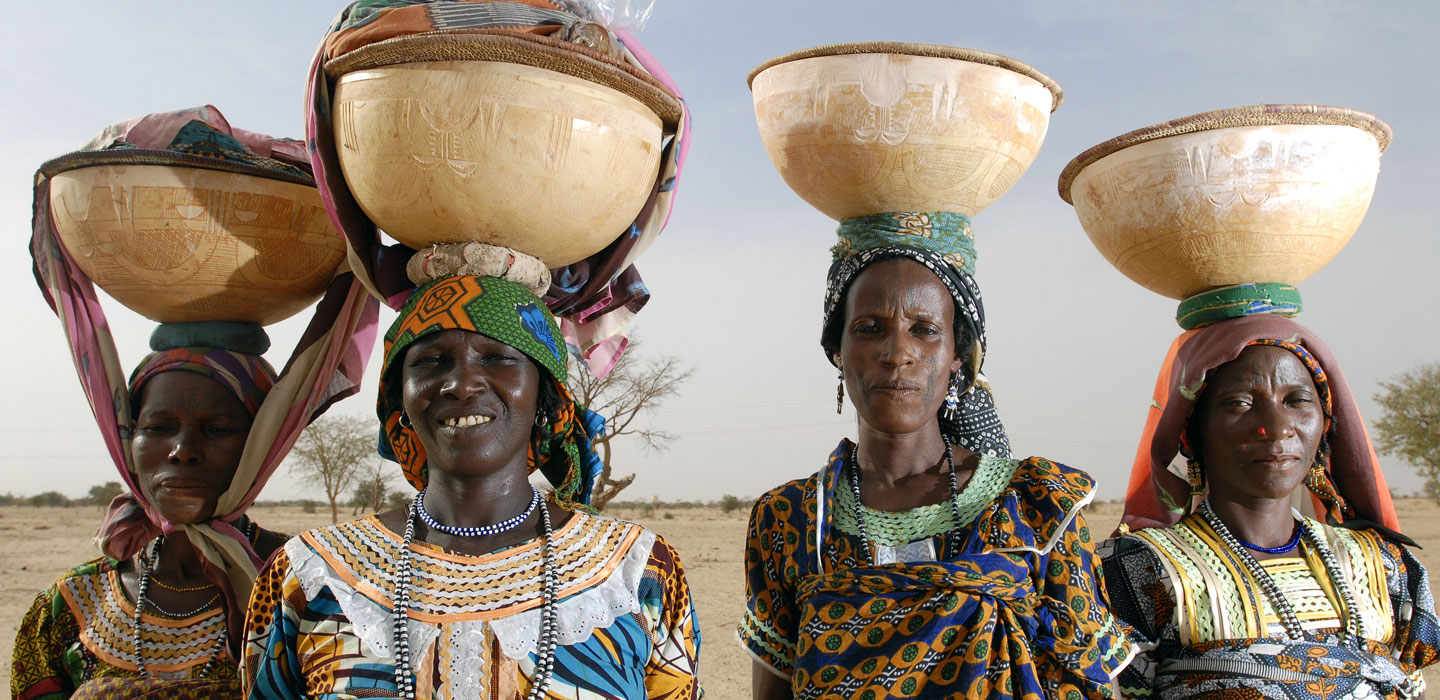Herramientas y Guías
Herramientas y Guías

Herramientas y Guías
Visualización del menú
Search Results Filters
Resultados de la búsqueda
Directrices operativas sobre la participación del FIDA en el desarrollo de la cadena de valor en favor de los pobres
These guidelines address recommendations on ensuring that IFAD’s pro-poor value chain development projects reach out to women and the very poor, apply a programmatic approach when needed, promote an inclusive value chain governance, work with the appropriate expertise and partners, and build capacity for implementation.
Adaptation Framework Tool
The Adaptation Framework is a repository of adaptation actions for small-scale agriculture, including livestock, forestry, and fisheries. It provides an approach for incorporating adaptation practices into project design.
Informe del estudio de casos del Sistemas de Garantía Participativa
Tras varios años de colaboración entre el FIDA y Slow Food sobre temas relacionados con la seguridad alimentaria, los pueblos indígenas y los jóvenes, en 2017, el FIDA aprobó "Empoderamiento de los jóvenes indígenas y sus comunidades para que defiendan y promuevan su patrimonio alimentario", un gran proyecto de donaciones que será ejecutado por Slow Food a lo largo de tres años.
How to prevent land use conflicts in pastoral areas
How to do note: Gender and pastoralism
PARM Final Report (2014-2019)
Guía práctica - Cómo efectuar una evaluación rápida del mercado ganadero: guía para profesionales
A manual in mobilizing migrant resources towards agricultural development in the Philippines
Guía práctica: Incorporar la nutrición a los programas sobre oportunidades estratégicas nacionales y los proyectos de inversión en la fase de diseño
This How-to-do Note is a practical step by step operational guidance on mainstreaming nutrition in IFAD-supported country strategies and investment projects for use by IFAD staff, consultants and partners.
Apoyando una agricultura sensible a la nutrición, a través de especies olvidadas y subutilizadas: Marco operacional
El apoyo del FIDA para mejorar el uso de la agrobiodiversidad, específicamente el referente a especies olvidadas y subutilizadas (NUS) y a un mayor reconocimiento de los saberes tradicionales de los Pueblos Indígenas (IP) son importantes para combatir la inseguridad alimentaria y nutricional.
PARM Annual Progress Report 2018
Guidelines for Impact Evaluation of Land Tenure and Governance Interventions
Herramienta de evaluación para medir la adaptación al cambio climático en el contexto del desarrollo rural (CARD)
La Herramienta de evaluación para medir la adaptación al cambio climático en el contexto del desarrollo rural (CARD) es una plataforma que evaluar los posibles efectos del cambio climático sobre el rendimiento de los principales cultivos.
Guidebook for mobilizing inclusive remittances for rural investment
Cadenas de valor sensibles a la nutrición: Una guía para el diseño de los proyectos - Vol. II
Cadenas de valor sensibles a la nutrición: guía para el diseño de proyectos - Vol. I
La publicación Cadenas de valor que tienen en cuenta la nutrición: guía para el diseño de proyectos tiene por objeto cerrar una laguna clave en los conocimientos relativos a la incipiente esfera de la relación entre las cadenas de valor y la nutrición, por cuanto brinda orientación sobre la manera de diseñar proyectos de cadenas de valor que tengan en cuenta la nutrición, con especial hincapié en los pequeños productores.
Toolkit: Engaging with pastoralists – a holistic development approach
How to do note: Engaging with pastoralists – a holistic development approach
Lessons learned: Engaging with pastoralists – a holistic development approach
How To Do Note: Access to finance for renewable energy technologies
Lessons learned: Access to finance for renewable energy technologies
Toolkit: Access to finance for renewable energy technologies
Rural women's leadership programme in grass-roots organizations: a case study in Nepal
Women-led business and value chain development; a case study in Tajikistan
Investments in smallholder goat development and related value chains are effective means to reduce poverty and increase the incomes of men and women from resource-poor households. They are also effective channels to promote gender equality and women’s empowerment in remote mountainous
areas.
Indigenous Peoples Glossary (English, French, Spanish)
Secretary (Language Services) and the Indigenous Peoples Desk in the Policy and Technical Advisory Division. The purpose of the glossary is to ensure
consistency and accuracy of terminology in English, French and Spanish, and standardize the terminology used in relation to indigenous peoples in official
documentation and publications, and in all aspects of meeting preparations. It is intended for use by IFAD staff, indigenous peoples' organizations and other
interested parties. Terms and definitions are accompanied by details of the source document and its date of publication.
Integrated promotion of gender equality and women's empowerment: economic empowerment, decision-making and workloads
address the cross-cutting and multifaceted nature of gender inequality through multiple entry points.
Metodologías basadas en los hogares
Toolkit: Apoyo a los sistemas de semillas de los pequeños agricultores
Notas prácticas: Apoyar los sistemas de semillas de los pequeños agricultores
Esta Notas Prácticas (HTDN en sus siglas en inglés) en este conjunto de herramientas sobre Apoyar a los Sistemas de Semillas de Pequeños Productores aborda las complejidades de los sistemas de semillas, estableciendo un proceso para apoyar a los responsables de la toma de decisiones de las políticas agrícolas nacionales, a las agencias de desarrollo nacionales e internacionales y a los Gerentes de los Programas en los países del FIDA en el diseño y supervisión de proyectos relacionados con semillas. Las otras publicaciones de esta herramienta son el Teaser y las Enseñanzas Extraídas.